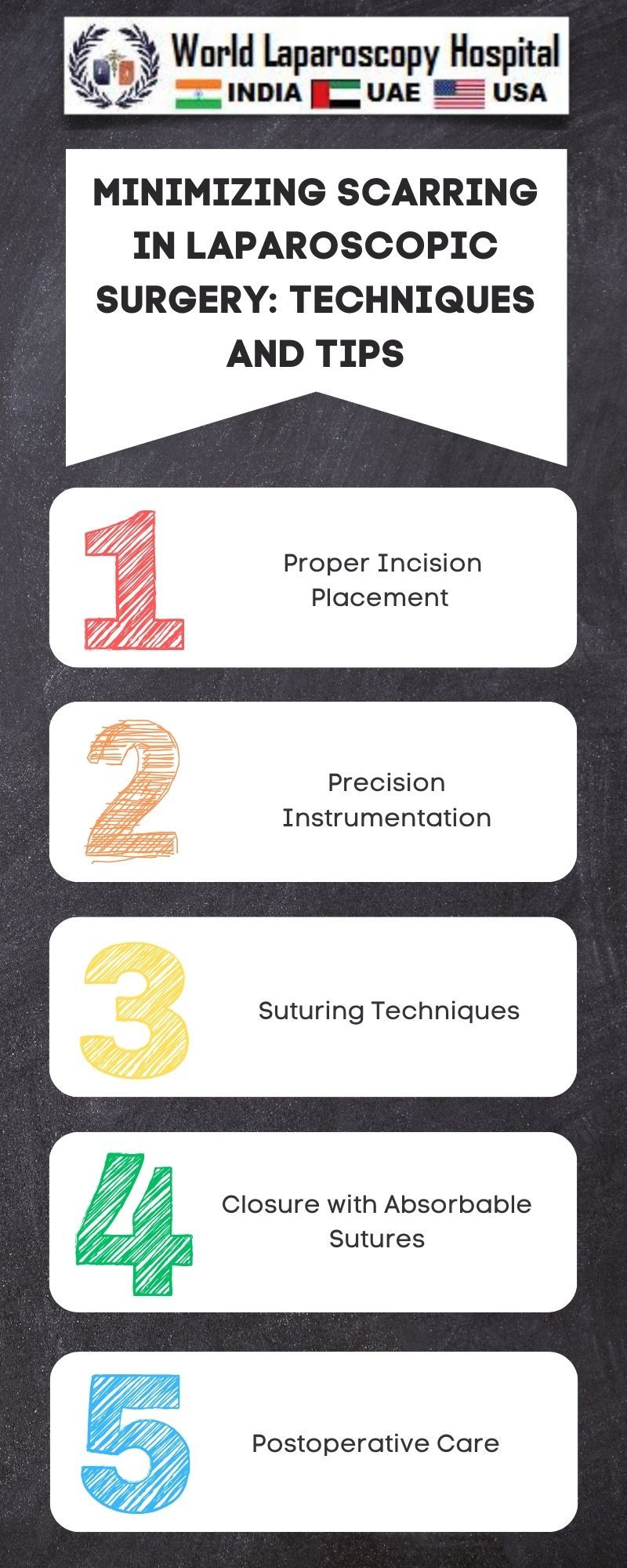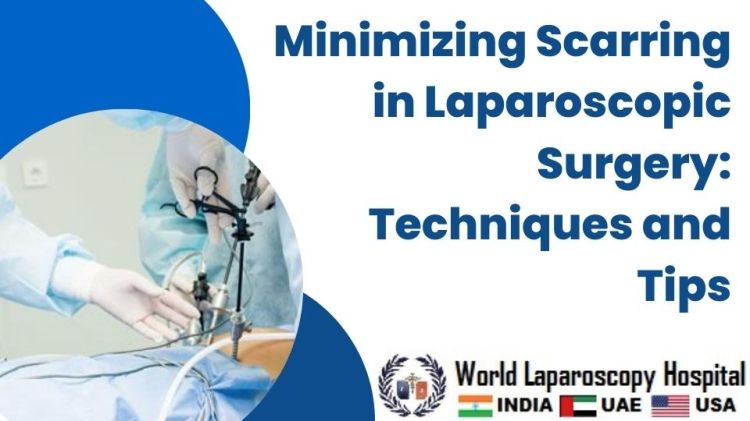Minimizing Scarring in Laparoscopic Surgery: Techniques and Tips
Introduction:
Laparoscopic surgery, also known as minimally invasive surgery, has revolutionized the field of surgery by offering patients quicker recovery times, reduced postoperative pain, and smaller incisions. Despite these benefits, scarring remains a concern for both patients and surgeons. This article explores a myriad of techniques and tips aimed at minimizing scarring in laparoscopic surgery, emphasizing the importance of cosmetic outcomes and patient satisfaction.

Choice of Incision Sites:
Laparoscopic procedures involve making small incisions through which instruments and a camera are inserted. Careful selection of incision sites is paramount to minimize scarring. Surgeons often choose locations that are cosmetically favorable, such as natural skin creases, to conceal scars effectively.
Size Matters:
The size of incisions directly correlates with scarring. Smaller incisions lead to less tissue trauma and reduced scarring. Surgeons strive to use the smallest incisions possible without compromising the success of the procedure. Advances in technology and instrument design allow for the use of finer tools, contributing to minimal scarring.
Trocar Placement and Handling:
Trocars are the tubes that facilitate the entry of instruments into the abdominal cavity. Proper trocar placement is crucial to avoid unnecessary tissue damage. Surgeons carefully insert trocars to minimize trauma to underlying structures and reduce the risk of visible scarring.
Precise Tissue Handling:
Gentle tissue handling is essential to minimize scarring. Surgeons employ delicate techniques to manipulate tissues, avoiding unnecessary stretching or tearing. This approach not only contributes to improved cosmetic results but also enhances patient recovery by reducing postoperative pain and discomfort.
Hemostasis Techniques:
Efficient control of bleeding is crucial during laparoscopic surgery. Surgeons use advanced hemostatic techniques to minimize tissue damage, which in turn reduces scarring. Proper coagulation and sealing of blood vessels contribute to a cleaner surgical field and less visible scarring.
Advanced Closure Methods:
The method of closing incisions significantly influences scarring. Surgeons may use techniques such as subcuticular sutures, tissue glue, or absorbable staples for optimal wound closure. These methods promote faster healing and result in less conspicuous scars.
Dermal Closure Techniques:
Attention to dermal closure is vital for achieving cosmetically pleasing results. Surgeons may employ buried sutures or techniques that minimize tension on the skin, reducing the risk of hypertrophic or keloid scarring. Strategic closure methods contribute to the overall aesthetic outcome.
Patient Education and Scar Care:
Educating patients about scar care is crucial for long-term satisfaction. Providing guidance on scar massage, sunscreen application, and the use of scar-minimizing products can empower patients to actively participate in their recovery process and achieve optimal cosmetic results.
Laser Technology and Scar Reduction:
Advancements in laser technology offer new possibilities for scar reduction. Surgeons may use lasers to refine incision edges, promote collagen remodeling, and minimize scar visibility. Laser-assisted techniques represent a promising avenue for further improving cosmetic outcomes in laparoscopic surgery.
Continuous Professional Development:
urgeons committed to minimizing scarring in laparoscopic surgery engage in continuous learning. Staying updated on the latest techniques, instruments, and technologies allows them to refine their skills and adopt innovative approaches that contribute to superior cosmetic results.
Conclusion:
Minimizing scarring in laparoscopic surgery is a multifaceted endeavor that requires a combination of technical expertise, innovative technologies, and patient collaboration. Surgeons must prioritize both the success of the procedure and the cosmetic outcomes to ensure overall patient satisfaction. As the field continues to evolve, the pursuit of minimizing scarring remains at the forefront, driving advancements that benefit patients undergoing laparoscopic surgery.
